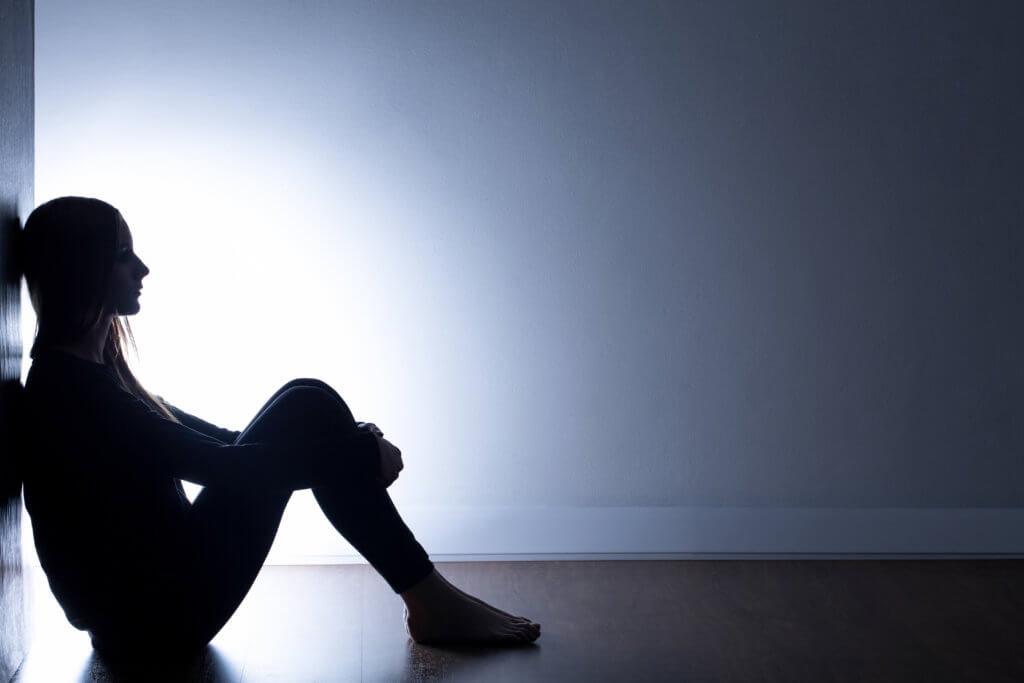Depression can come in many forms. When someone begins to show signs of depression, such as unexplained sadness, irritability, difficulty falling asleep, social withdrawal, memory loss, and/or personality changes, they may think that they are ‘depressed.’ However, many people do not realize that there are several types of depression, and being able to identify which depression type your symptoms most closely identify with can make all the difference when it comes to identifying the root cause and the best treatments. The common feature between all types of depressive disorders is a sad, empty, or irritable mood and clinically significant associated symptoms. What tends to differ are the durations, timing, and cause.
Major Depressive Disorder (MDD)

Major Depressive Disorder is one of the six types of depression. It causes many people to experience a persistently depressive mood, causing individuals to undergo significant impairments in their everyday lives. The causes of this disorder can be biological, psychological, or a combination of both. This disorder is typically characterized by:
- Feelings of constant sadness or hopelessness
- Low self-esteem
- Being irritable or unwilling to interact with others in social situations
- Finding it difficult to make decisions or have the motivation to complete daily tasks
- Trouble concentrating
- Insomnia and/or fatigue
- Having no interest in hobbies or activities that you used to enjoy
Seasonal Affective Disorder (SAD)
Seasonal Affective Disorder is a mood disorder characterized by depression that occurs at the same time each year. Many people who suffer from this disorder tend to live in places where it gets significantly darker and colder in the winter months, while others may experience SAD during the summer months, particularly as they juggle additional work, family, and social obligations. Symptoms of SAD include:
- Symptoms recurring seasonally
- Feeling depressed, mostly all day every day
- Low energy levels creating a sluggish or agitated mood
- Difficulty focusing and/or concentrating
- Loss of interest in activities you used to enjoy participating in
- Appetite changes
- Weight gain
- Mood swings
Peripartum Depression (PPD)
Peripartum depression falls under MDD but with peripartum onset. PPD is a type of depression that usually occurs between the time a woman is pregnant and the first month following childbirth, but it can often lead to the development of MDD later in life. It is often characterized by:
- Insomnia and related lack of energy
- High levels of irritability
- Lack of concentration
- Feelings of guilt, anxiety, and/or panic attacks
- Mood swings
- Difficulty bonding with the new baby
- Loss of appetite
Persistent Depressive Disorder (Chronic MDD & Dysthymia)
Persistent Depressive Disorder is a usually mild, yet long-term form of depression associated with Dysthymia, which is defined as having a depressed mood for at least two years in addition to experiencing at least two other symptoms of depression. It is usually characterized by:
- A depressed mood most of the time for an extended amount of time
- Feelings of hopelessness
- Eating unhealthily (sometimes in excess amounts)
- Inability to sleep or sleeping for excessive amounts of time
- Low energy
- Poor concentration
- Low self-esteem
Premenstrual Dysphoric Disorder (PMDD)
Premenstrual Dysphoric Disorder is a disorder similar to PMS, but it is more serious because it tends to be characterized by more intense symptoms (symptoms tend to lessen in intensity 3-4 days after the woman’s period starts), such as:
- Severe irritability (more intense than what is usually caused by premenstrual syndrome)
- Depression and/or anxiety experienced in the weeks prior to a woman’s period
- Mood swings, including anger and sadness
- Insomnia or sleeping in excess
- Appetite changes and bloating
- Less interest in usual hobbies or activities
- Cravings for specific foods
Substance/Medication-Induced Depressive Disorder
Substance/medication-induced Depressive Disorder is one of the more chronic types of depressive disorders because the substances that cause this disorder can be serious threats to the health of the individual experiencing the disorder. This type of depressive disorder is usually characterized by the following symptoms (during or soon after taking various substances and/or medications):
- A depressed and sad mood most of the time each day
- High levels of anxiety
- Psychotic or manic symptoms occuring mainly from the abuse of substances and/or medications
- Irritability
- Trouble sleeping
- Weight gain or loss
- Lack of interest in previous hobbies
Within each of the six types of depression, there are many symptoms that overlap, but they also contain significant differences that can make an impactful difference when it comes to treatment.
Treatments for Depression
There are many different depression treatments that can be used to combat depression. First-line treatments for depression typically include talk therapy and psychiatry for medication management. However, only approximately 30% of people with depression fully respond to those conventional treatments. TMS, or transcranial magnetic stimulation, is one highly effective treatment alternative for depression with little to no side effects that are covered by most insurance. TMS can be used alone or in conjunction with therapy and medication. TMS sessions usually last about 20 minutes, and most patients typically begin to notice symptoms improvement within 2 weeks.
Depression Treatment in California
Neuro Wellness Spa can help you or a loved one who may be struggling with depression symptoms. We are proud to offer psychiatry, talk therapy, and TMS therapy for depression, available both in-person and online. Our psychiatrists will assess your symptoms and determine if medication management and/or TMS therapy is a good fit for you. Individual talk therapy is also available as a supplement to medications and TMS. If you or a loved one is experiencing depression signs or symptoms, please contact us today to find out if any of our depression treatment options are right for you.